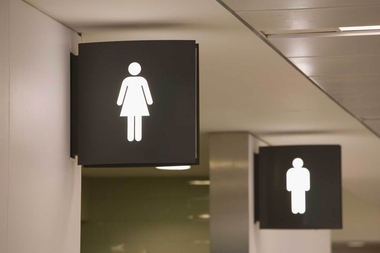Despite "bathroom bill" replacement, mayors won't budge

RALEIGH, N.C. (AP) — The compromise by politicians on North Carolina's "bathroom bill" is helping return collegiate sporting events to the state. But big-city mayors still don't want their employees traveling there after the replacement law.
The mayors of New York, Washington, San Francisco, Seattle, Salt Lake City and other cities announced this week that previous municipal bans on city-funded travel to North Carolina remain in place even though the law known as House Bill 2 is off the books. They agree with civil rights groups who argue discrimination still exists in the replacement law agreed to by Democratic Gov. Roy Cooper and the Republican-controlled legislature.
That's because the measure left some LGBT restrictions in place, including a moratorium until December 2020 on local governments passing broad nondiscrimination ordinances covering sexual orientation and gender identity. While the new law ended the HB2 provision requiring transgender people to use public restrooms corresponding to their birth certificates, state lawmakers remain in charge of future bathroom policies.
"This is not a reset of the law, but another scheme that will allow for state-sanctioned discrimination against a community that is already facing intense pressure," San Francisco Mayor Ed Lee said in a statement about the prohibition on taxpayer-funded travel to the state. "Because these latest actions continue to allow discrimination, that ban will remain in effect."
HB2 had harmed North Carolina's economic brand, discouraging some companies from relocating to or expanding in the state and leading the NCAA and Atlantic Coast Conference to move championship events out of the state this academic year. After passage of the replacement law March 30, both sports governing bodies have announced that North Carolina qualifies for their events again, although the NCAA said it was doing so "reluctantly" because the law "meets the minimal NCAA requirements."
New York Mayor Bill de Blasio's office tweeted Wednesday a ban on non-essential travel to North Carolina for city employees "will remain until the state protects the transgender community." Washington Mayor Muriel Bowser's spokeswoman Susana Castillo said Thursday the D.C. leader has no plans to lift the city's employee travel ban at this time.
The mayors' statements redouble uncomfortable criticisms from partisan allies upon Cooper, who signed the law last week despite campaigning on a platform demanding a complete HB2 repeal. Cooper said it was the best deal he could get with the Republican-controlled legislature to get rid of HB2 and did restore some LGBT protections in municipal contracts.
"Every American deserves to live free of discrimination, and the law signed last week by Gov. Cooper does nothing to protect the rights and dignity of our LGBTQ brothers and sisters," Los Angeles Mayor Eric Garcetti said in a statement. He urged the L.A. city council to expand the non-essential travel ban.
Gay rights groups blasting the replacement law are pleased with the mayoral support. Several groups took out a full-page ad in Raleigh's newspaper Thursday saying Cooper and Republican legislative leaders "were looking for a quick political win with this sham HB2 deal," with a goal to "trick business to coming back to the state."
An Associated Press analysis found that HB2 would cost the state more than $3.76 billion in lost business over a dozen years. Cooper told reporters last week some companies now nearing deals with the state to expand in North Carolina wouldn't have come without the replacement law.
The law is an "important step forward in protecting people from discrimination and bringing jobs and sports back to North Carolina and helping to repair our reputation," Cooper said.
___
By Gary D. Robertson. Copyright Associated Press.
The Gayly - 4/6/2017 @ 11:40 a.m. CST





